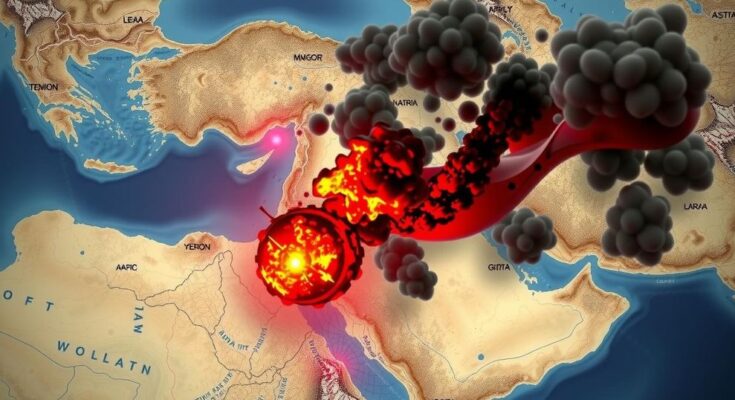Israel has escalated its military operations in Yemen, bombarding key infrastructure while the Houthis retaliate with missile strikes against Tel Aviv. This back-and-forth raises alarms about the potential for increased hostilities and broader conflict in the Middle East, as fears of Iranian influence loom large.
Recent Israeli military actions have intensified tensions in the Middle East, notably with the bombarding of targets in Yemen, including critical infrastructure such as the main airport and port city. Israeli Prime Minister Benjamin Netanyahu has indicated that these strikes are part of a broader campaign. In retaliation, the Houthi forces launched a missile targeting Tel Aviv, raising concerns over the escalation of hostilities. The situation has prompted discussions among various experts on the potential ramifications of these developments.
The conflict in Yemen has been marked by the civil war that began in 2014, involving multiple stakeholders, including the Houthi movement, which is supported by Iran, and a Saudi-led coalition backing the Yemeni government. Israel’s involvement through airstrikes signals its concern over Iranian influence in the region, while escalating violence threatens to draw in other nations and complicate an already complex humanitarian crisis in Yemen, which is facing severe food shortages and destruction.
The recent Israeli attacks on Yemen signify a potential shift in regional dynamics and pose significant risks of further conflict. As Israel vows more military actions, the retaliatory missile responses by the Houthis foreshadow an ongoing cycle of violence. This situation not only endangers peace efforts but also raises serious concerns for civilian safety and stability across the region.
Original Source: www.aljazeera.com




